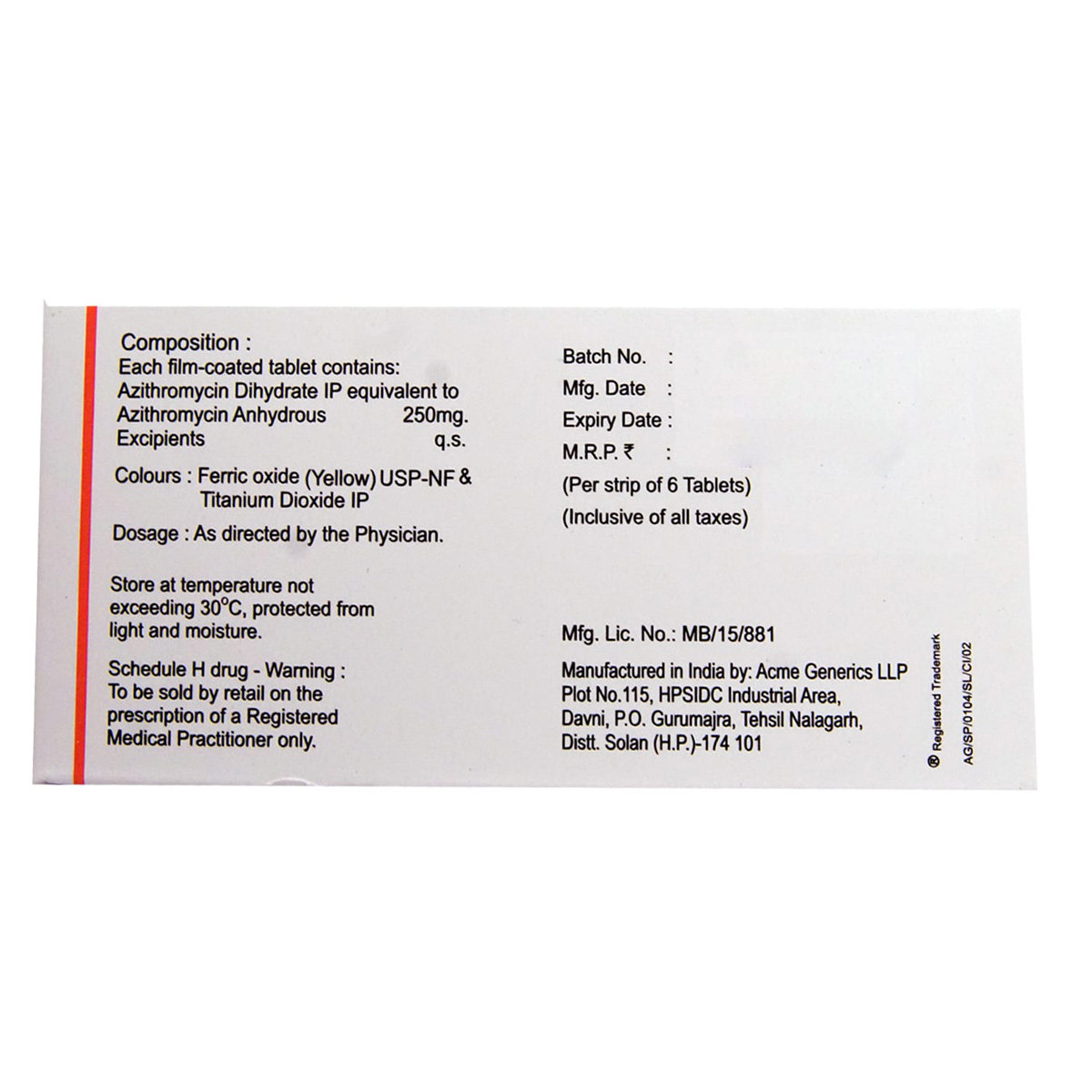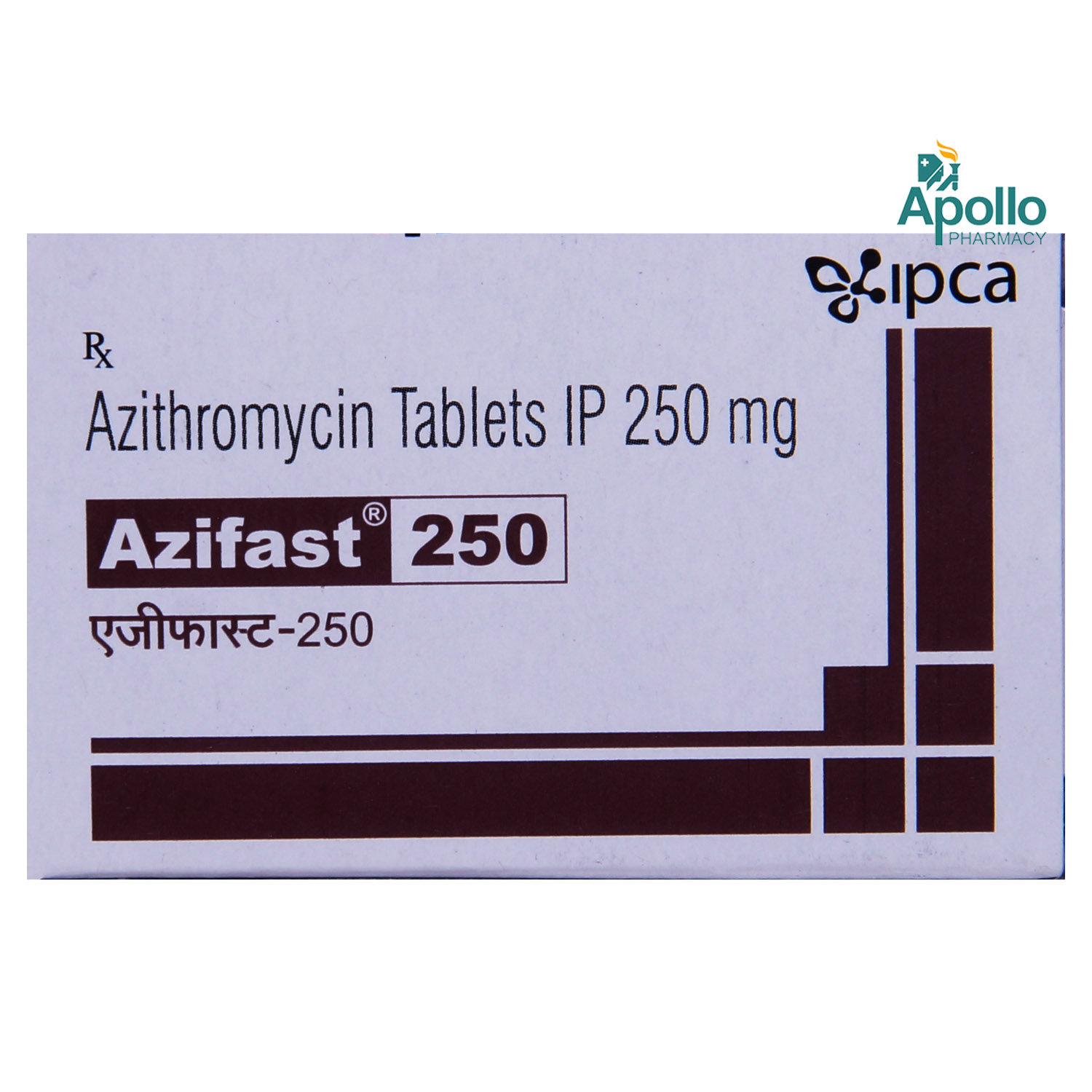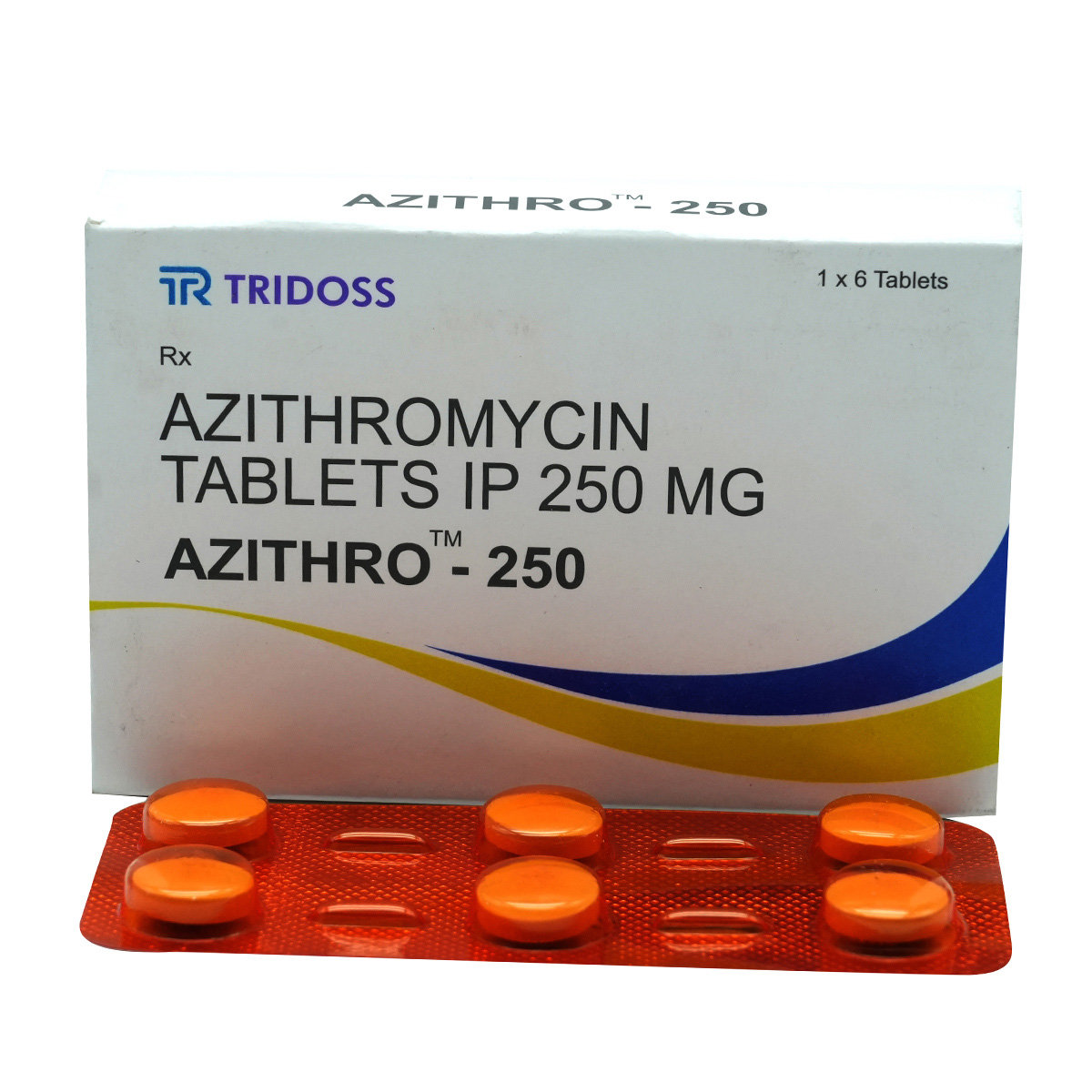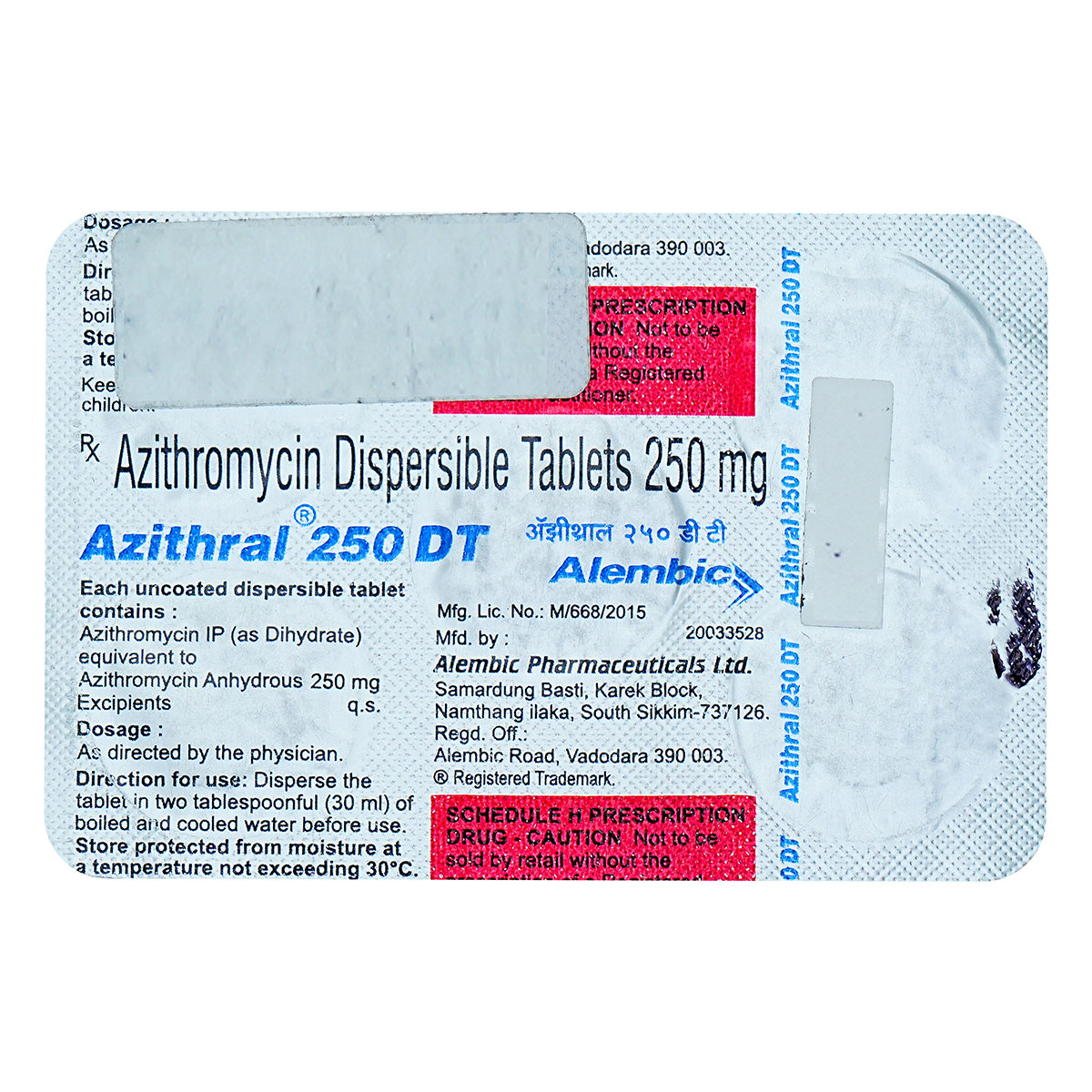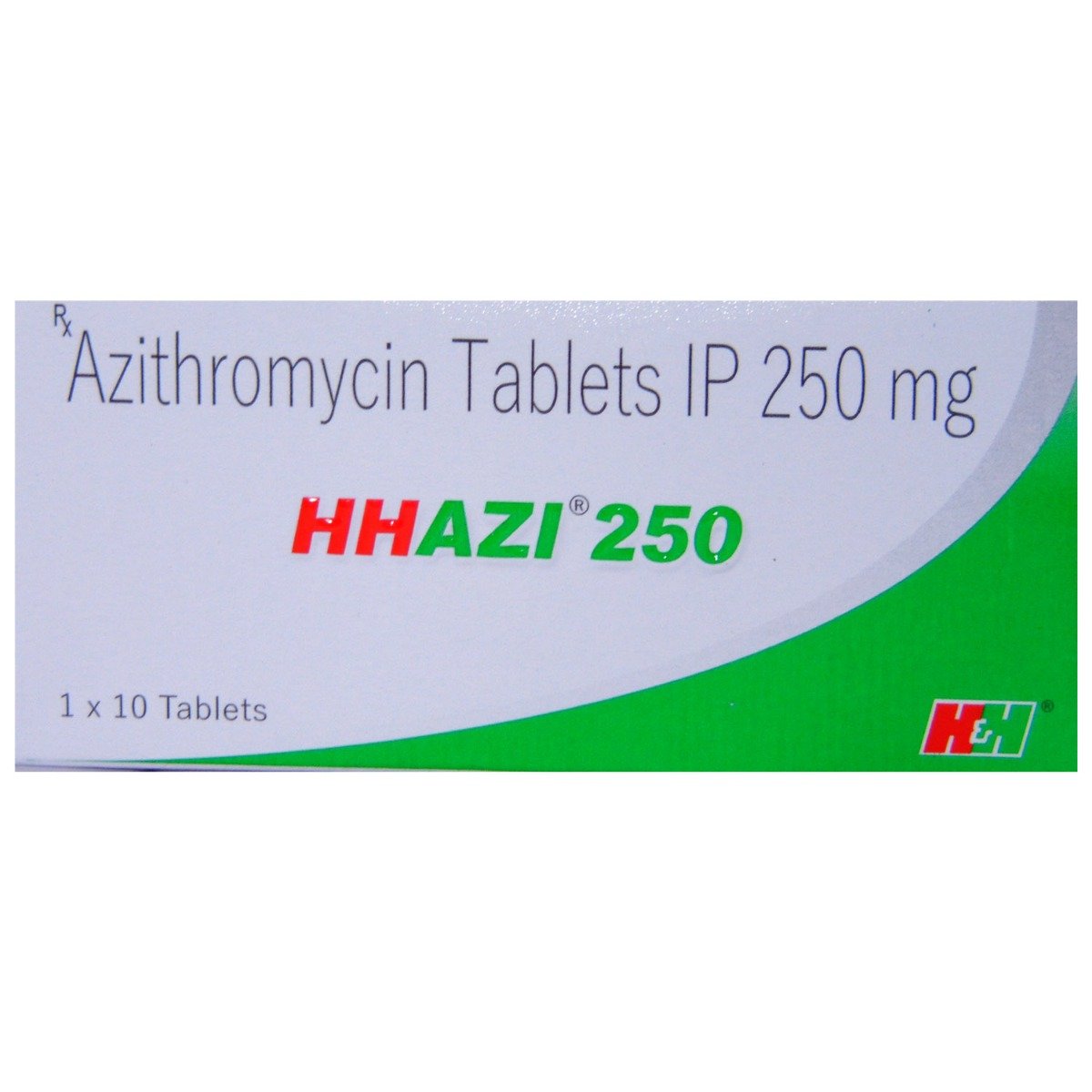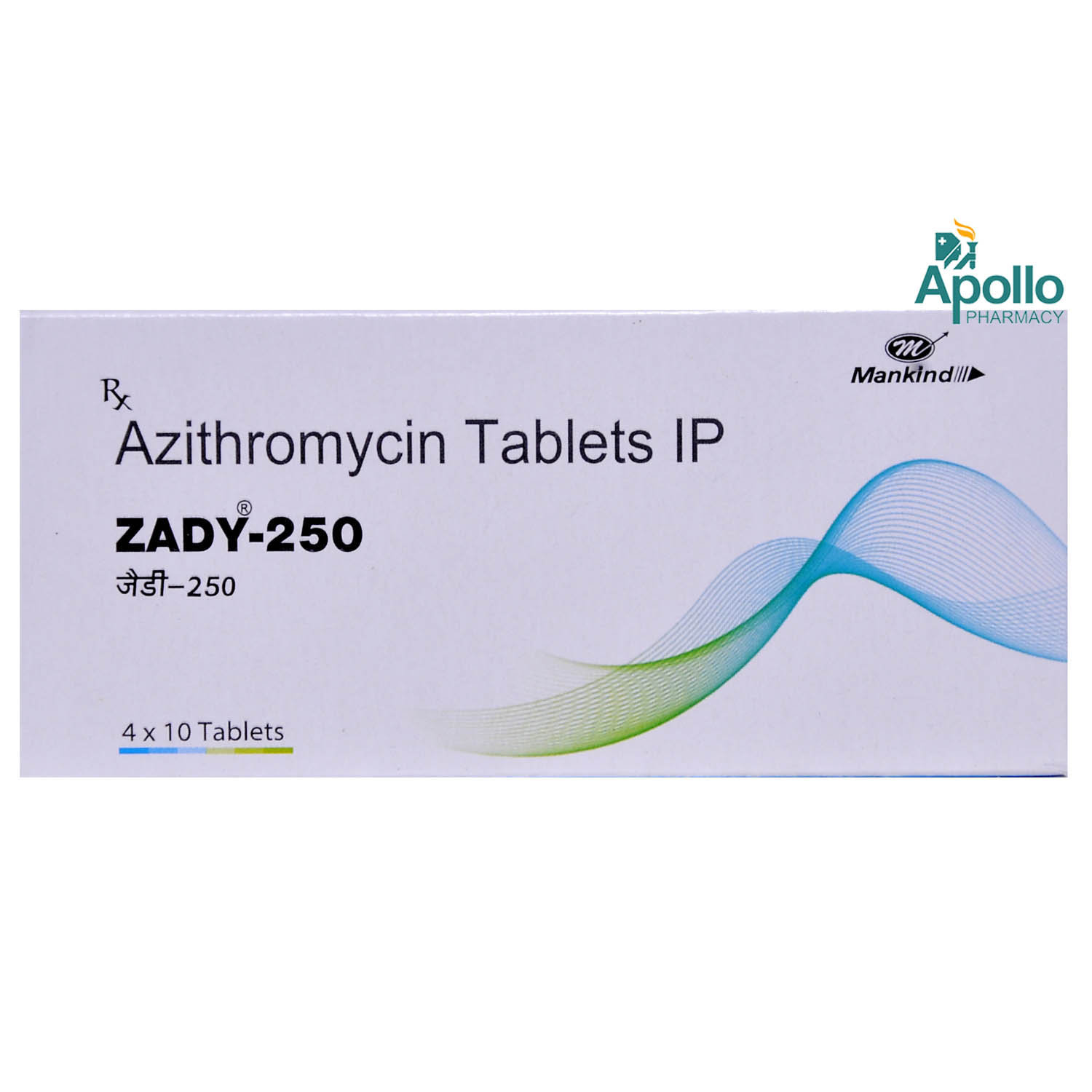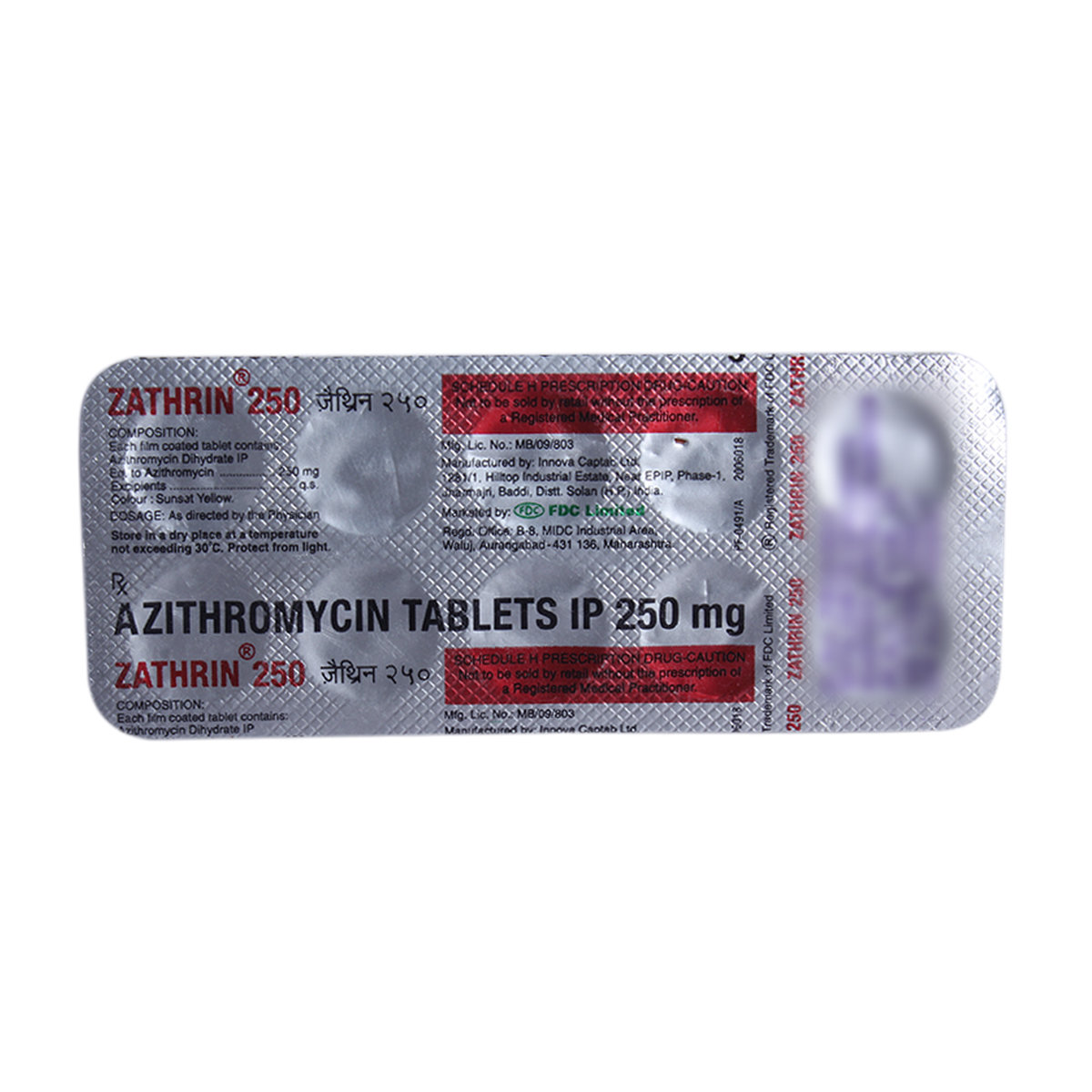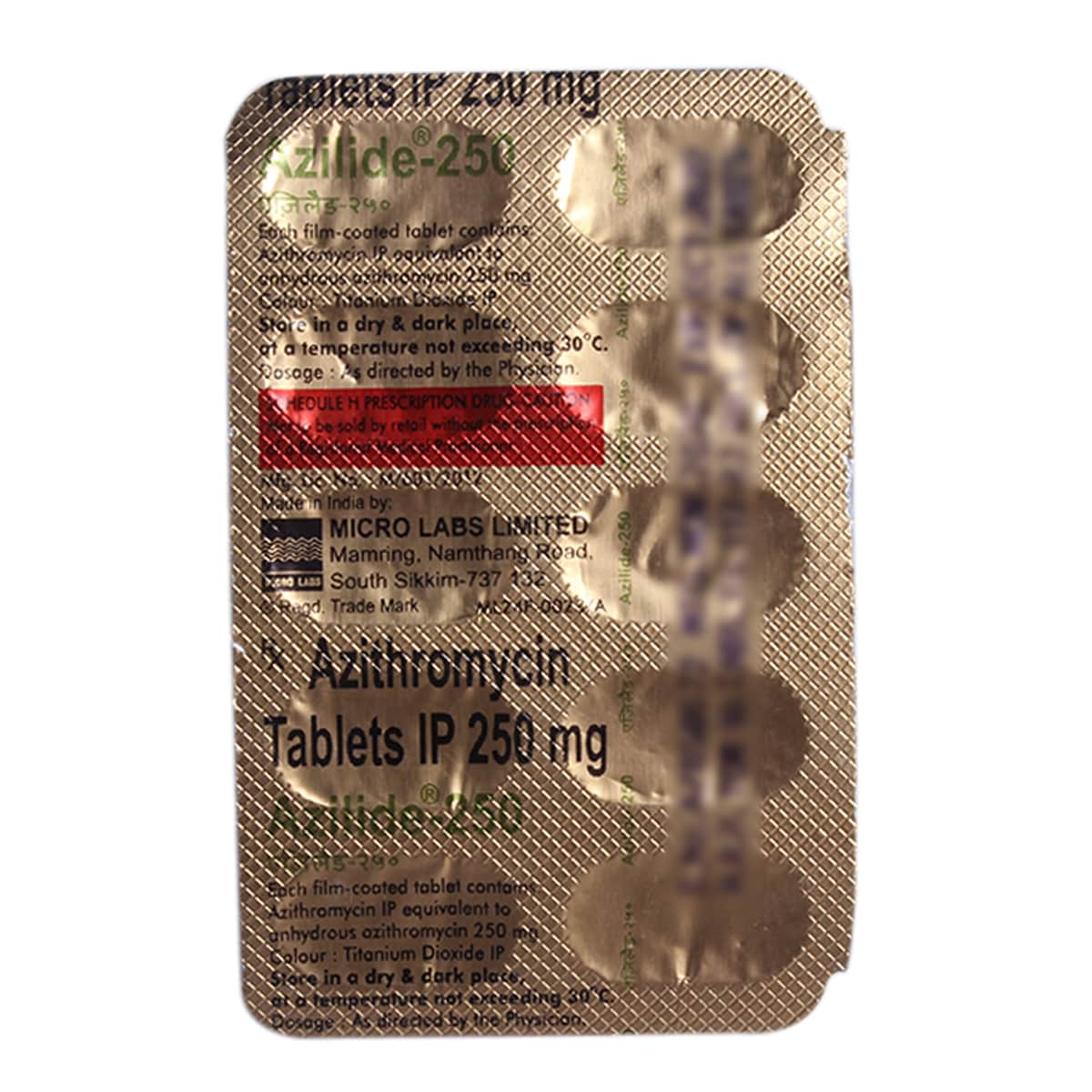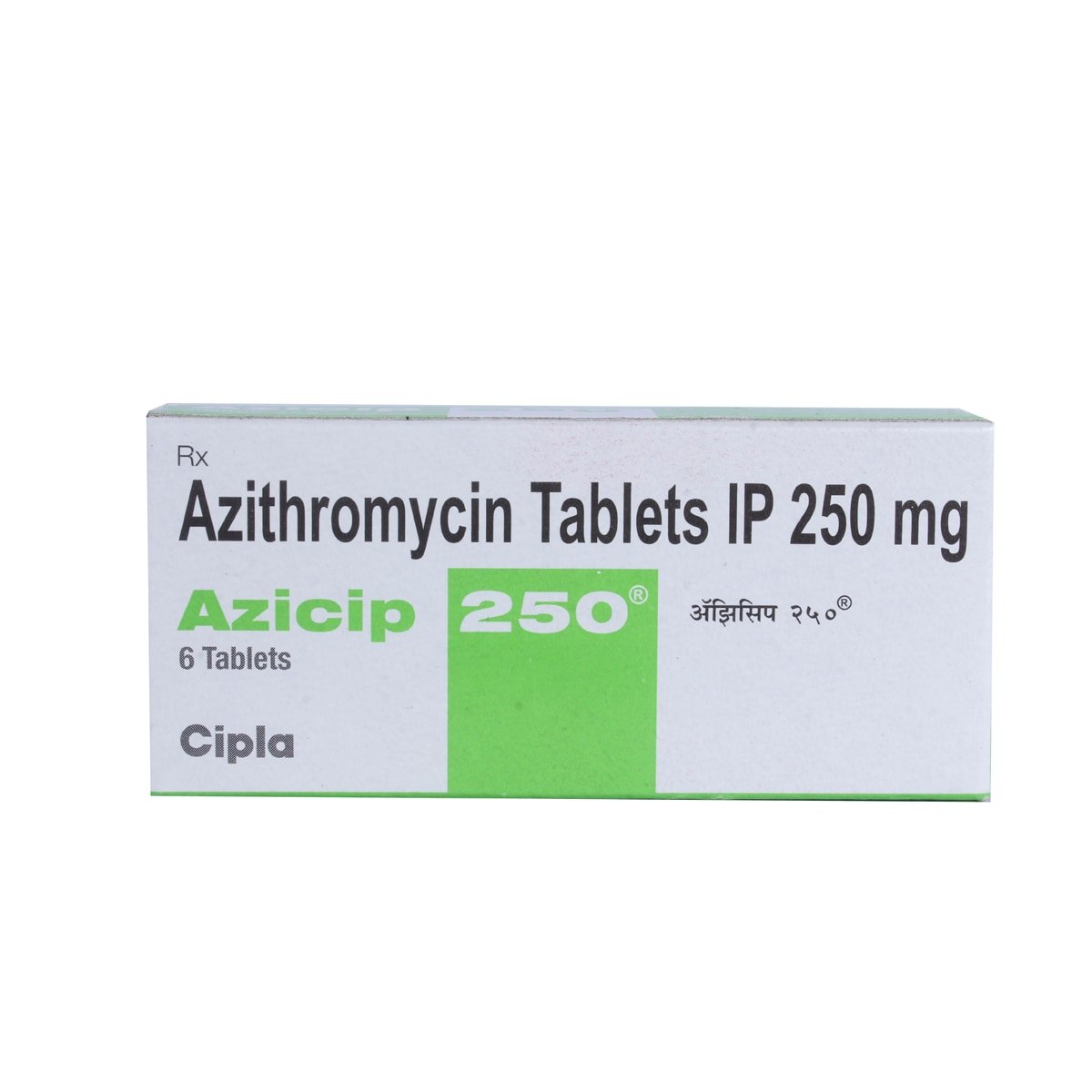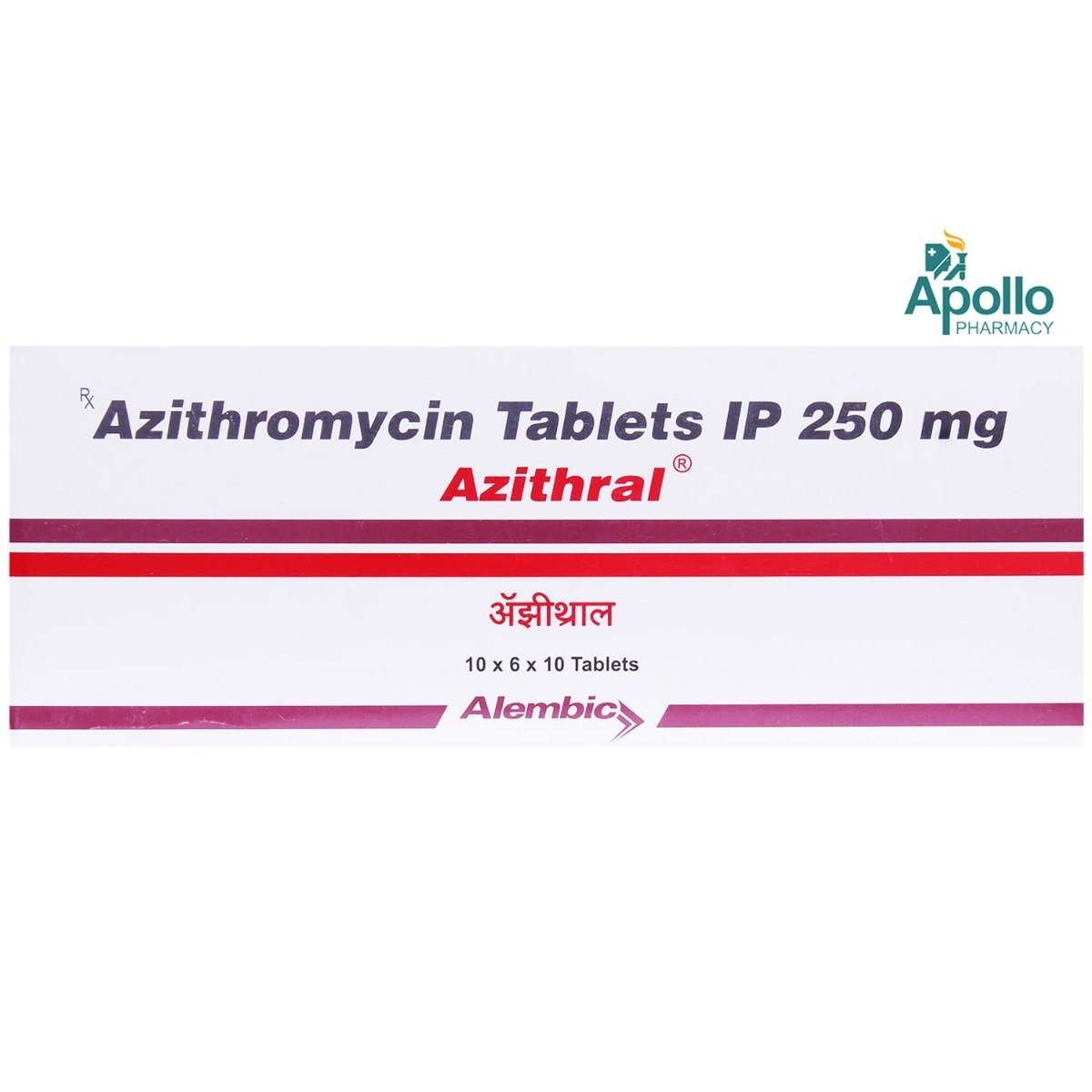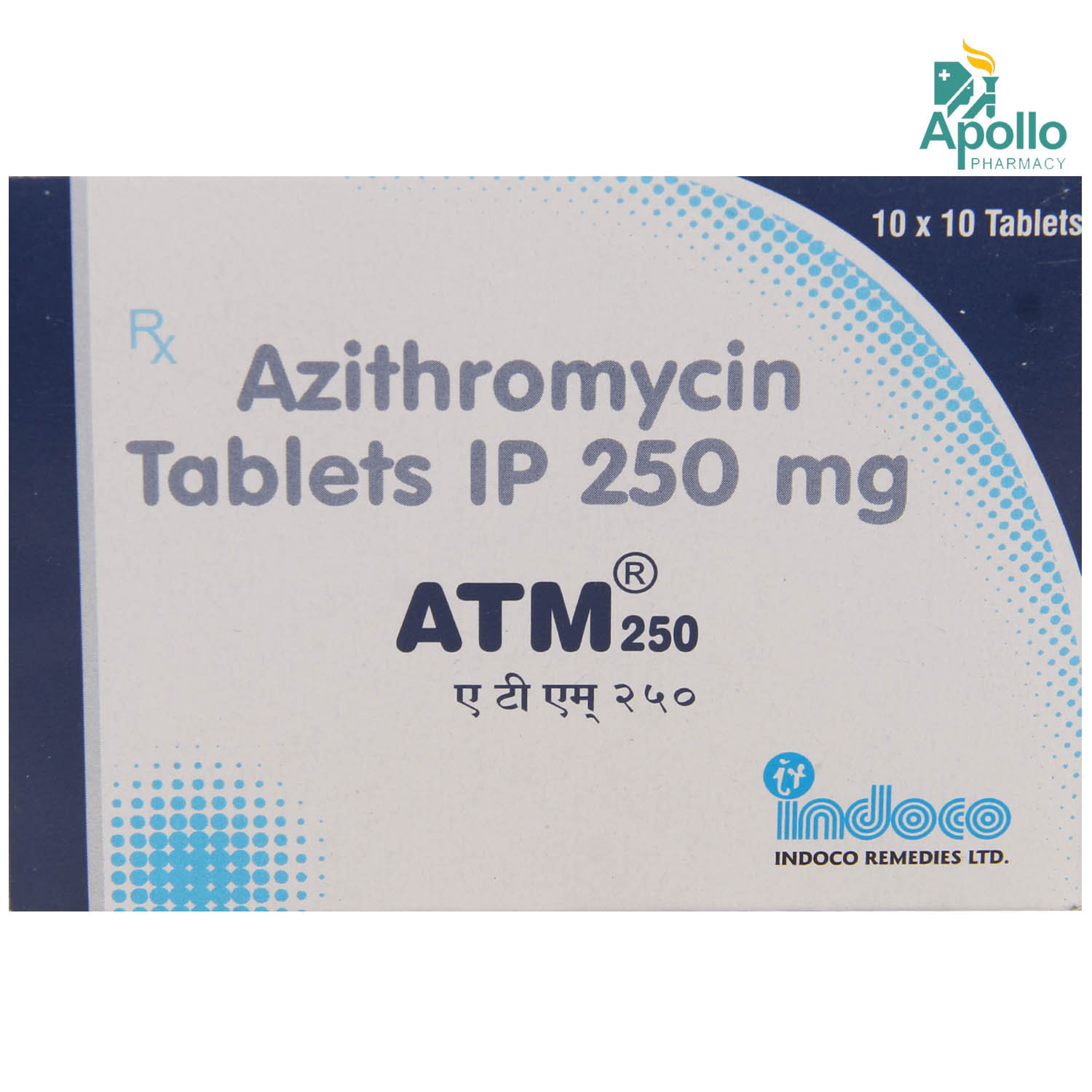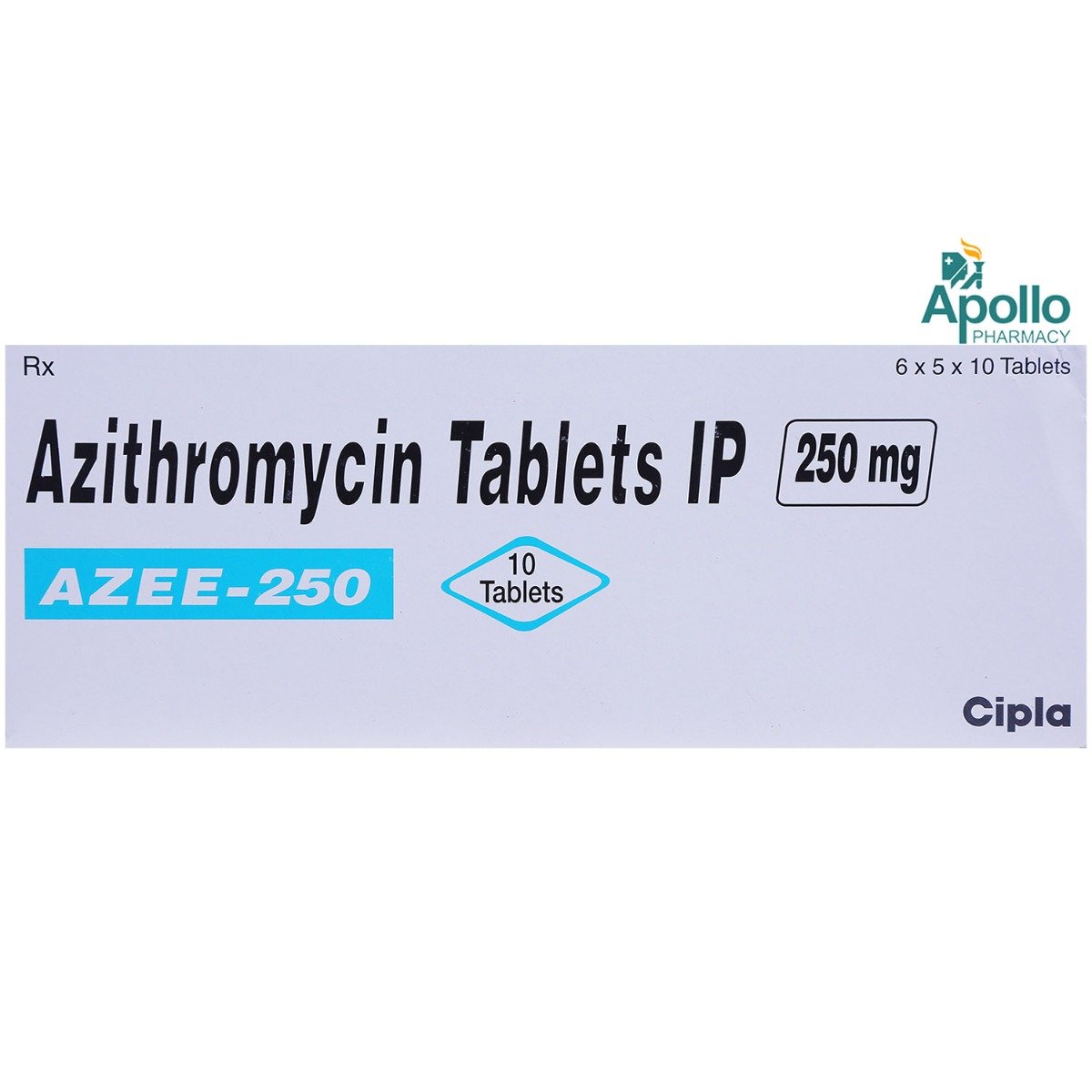Maxithral 250 mg Tablet 6's


MRP ₹57.08
(Inclusive of all Taxes)
₹8.6 Cashback (15%)
Provide Delivery Location
Online payment accepted
 Prescription drug
Prescription drugWhats That
Composition :
Manufacturer/Marketer :
Consume Type :
Expires on or after :
Return Policy :
NPPA :
About Maxithral 250 mg Tablet
Maxithral 250 mg Tablet belongs to a group of medicines known as macrolide antibiotics. It is used to treat various respiratory system bacterial infections (like pneumonia, bronchitis, tonsillitis, pharyngitis and sinusitis), skin infections (like acne and rosacea), ear infections, and sexually transmitted infections. A bacterial infection is a condition in which bacteria grow in the body and cause infection. It can target any body part and multiple very quickly.
Maxithral 250 mg Tablet slows the growth or sometimes kills the harmful bacteria by preventing the production of proteins required by the bacteria for its survival. Maxithral 250 mg Tablet does not treat a viral infection like flu or a common cold.
Maxithral 250 mg Tablet should only be taken if advised by your doctor. It can be taken with or without food but should be consumed at a fixed time for the best results. Maxithral 250 mg Tablet should not be consumed more than the recommended dose, to avoid unpleasant side effects. And also, the course should be completed even if you feel better as it is an antibiotic. Some common side effects of Maxithral 250 mg Tablet are diarrhoea, nausea, vomiting, and indigestion. An allergic reaction such as rashes, itching, swelling, and shortness of breath can occur in rare cases. Please consult your doctor if an allergic reaction becomes severe.
Tell your doctor if you have liver problems, muscle problems (myasthenia gravis), heart rhythm disorder (arrhythmia), or electrolyte imbalance (low potassium or magnesium level). You should consult a doctor if you have had diarrhoea for more than four days. However, do not take any anti-diarrheal medicine until your doctor tells you. It is unknown whether Maxithral 250 mg Tablet harms the baby or passes into breast milk in pregnancy and breastfeeding state. Contacting a doctor before using Maxithral 250 mg Tablet during pregnancy and while breastfeeding is better. Avoid too much exposure to sunlight as Maxithral 250 mg Tablet can make your skin sensitive to sunburn. In this case, it is advisable to wear protective clothing or apply sunscreen (SPF 30 or higher) when you are outdoors.
Uses of Maxithral 250 mg Tablet
Azithromycin is a macrolide antibiotic that treats various bacterial infections, such as:
- 1. Treat Bacterial Infections
- Respiratory tract infections (e.g. bronchitis, pneumonia)
- Throat infections (e.g. tonsillitis, pharyngitis)
- Ear infections (e.g. otitis media)
- Skin and soft tissue infection
- Sexually transmitted infections (e.g. chlamydia)
- Typhoid fever (in some cases)
Directions for Use
- Take Maxithral 250 mg Tablet as prescribed by your physician.
- It can be taken with or without food. .
- Swallow the medicine as a whole with a glass of medicine. Do not chew or crush or break the tablet.
Key Benefits
Maxithral 250 mg Tablet slows the growth or sometimes kills the harmful bacteria by preventing the production of proteins required by the bacteria for its survival. It prevents and treats bacterial infections like throat and sinus infections, chest infections (like bronchitis and pneumonia), ear infections, mouth and dental infections, eye infections, skin and tissue infections (like acne), and stomach and intestinal infections. It is better tolerated and has more effective tissue penetration than other similar antibiotics like erythromycin. Doctors prescribe Maxithral 250 mg Tablet for people who are intolerant to penicillin antibiotics. Besides this, it also helps prevent infection following burns, surgery or dental procedure, sexually transmitted infections, bone infections or scarlet fever (bacterial illness with strep throat).
Storage
- Inform Your Doctor: Notify your doctor immediately about your diarrhoea symptoms. This allows them to adjust your medication or provide guidance on managing side effects.
- Stay Hydrated: Drink plenty of fluids to replace lost water and electrolytes. Choose water, clear broth, and electrolyte-rich drinks. Avoid carbonated or caffeinated beverages to effectively rehydrate your body.
- Follow a Bland Diet: Eat easy-to-digest foods to help firm up your stool and settle your stomach. Try incorporating bananas, rice, applesauce, toast, plain crackers, and boiled vegetables into your diet.
- Avoid Trigger Foods: Steer clear of foods that can worsen diarrhoea, such as spicy, fatty, or greasy foods, high-fibre foods, and dairy products (especially if you're lactose intolerant).
- Practice Good Hygiene: Maintain good hygiene to prevent the spread of infection. To stay healthy, wash your hands frequently, clean and disinfect surfaces regularly, and avoid exchanging personal belongings with others.
- Take Anti-Diarrheal Medications: If your doctor advises, anti-diarrheal medications such as loperamide might help manage diarrhoea symptoms. Always follow your doctor's directions.
- Keep track of your diarrhoea symptoms. If they don't get better or worse or are accompanied by severe stomach pain, blood, or dehydration signs (like extreme thirst or dark urine), seek medical help.
- Inform your doctor about the nausea and discuss possible alternatives to the medication or adjustments to the dosage.
- Divide your daily food intake into smaller, more frequent meals to reduce nausea.
- Opt for bland, easily digestible foods like crackers, toast, plain rice, bananas, and applesauce.
- Avoid certain foods that can trigger nausea, such as fatty, greasy, spicy, and smelly foods.
- Drink plenty of fluids, such as water, clear broth, or electrolyte-rich beverages like coconut water or sports drinks.
- Use ginger (tea, ale, or candies) to help relieve nausea.
- Get adequate rest and also avoid strenuous activities that can worsen nausea.
- Talk to your doctor about taking anti-nausea medication if your nausea is severe.
- Record when your nausea occurs, what triggers it, and what provides relief to help you identify patterns and manage your symptoms more effectively.
- Drink water or other clear fluids.
- To prevent worsening of pain, limit intake of tea, coffee, or alcohol.
- Include bland foods like rice, toast, crackers, and rice in your diet.
- Avoid lying down immediately after eating as it may cause indigestion or heartburn.
- Avoid acidic and spicy food as it may cause indigestion.
- Inform Your Doctor: Notify your doctor immediately about your diarrhoea symptoms. This allows them to adjust your medication or provide guidance on managing side effects.
- Stay Hydrated: Drink plenty of fluids to replace lost water and electrolytes. Choose water, clear broth, and electrolyte-rich drinks. Avoid carbonated or caffeinated beverages to effectively rehydrate your body.
- Follow a Bland Diet: Eat easy-to-digest foods to help firm up your stool and settle your stomach. Try incorporating bananas, rice, applesauce, toast, plain crackers, and boiled vegetables into your diet.
- Avoid Trigger Foods: Steer clear of foods that can worsen diarrhoea, such as spicy, fatty, or greasy foods, high-fibre foods, and dairy products (especially if you're lactose intolerant).
- Practice Good Hygiene: Maintain good hygiene to prevent the spread of infection. To stay healthy, wash your hands frequently, clean and disinfect surfaces regularly, and avoid exchanging personal belongings with others.
- Take Anti-Diarrheal Medications: If your doctor advises, anti-diarrheal medications such as loperamide might help manage diarrhoea symptoms. Always follow your doctor's directions.
- Keep track of your diarrhoea symptoms. If they don't get better or worse or are accompanied by severe stomach pain, blood, or dehydration signs (like extreme thirst or dark urine), seek medical help.
- Tell your doctor about your GAS symptoms. They may change your medication regimen or prescribe additional drugs to help you manage them.
- To manage GAS symptoms, eat a balanced diet of fibre, vegetables, and fruits.
- Drink enough water throughout the day to avoid constipation and treat GAS symptoms.
- Regular exercise like yoga and walking may help stimulate digestion and alleviate GAS symptoms.
- Take probiotics only if your doctor advises, as they may help alleviate GAS symptoms by promoting gut health.
- Take medication for GAS symptoms only if your doctor advises, as certain medications can interact with your existing prescriptions or worsen symptoms.
- If symptoms persist, worsen, or are accompanied by severe abdominal pain, vomiting, or bleeding, seek immediate medical attention.
- Avoid taking raw fruits, nuts and vegetables.
- Do not share your personal things with others like toothbrushes.
- Clean the wounds and cuts using soap and water.
- Wash your hands thoroughly and frequently and maintain hygiene.
- Get a good quality of sleep.
- Preventing Vomiting (Before it Happens)
- Take medication exactly as prescribed by your doctor. This can help minimize side effects, including vomiting.
- Having a small meal before taking your medication can help reduce nausea and vomiting.
- Talk to your doctor about taking anti-nausea medication along with your prescribed medication.
- Managing Vomiting (If it Happens)
- Try taking ginger in the form of tea, ale, or candy to help alleviate nausea and vomiting.
- What to Do if Vomiting Persists
- Consult your doctor if vomiting continues or worsens, consult the doctor for guidance on adjusting your medication or additional treatment.
Drug Warnings
Tell your doctor if you have liver problems (jaundice), muscle problems (myasthenia gravis), heart rhythm disorder (arrhythmia), or electrolyte imbalance (low potassium or magnesium level). In rare cases, the use of Maxithral 250 mg Tablet can cause diarrhoea, so if you have watery or bloody diarrhoea, stop taking Maxithral 250 mg Tablet and call your doctor. However, do not take any anti-diarrheal medicine until your doctor tells you. It is unknown whether Maxithral 250 mg Tablet harms the baby during pregnancy. Consult your doctor if you are pregnant, planning for pregnancy or breastfeeding before using Maxithral 250 mg Tablet. Do not take Maxithral 250 mg Tablet if allergic to azithromycin or other macrolide antibiotics. Inform the doctor if you are using cholesterol-lowering drugs (statins like simvastatin, lovastatin etc.), anti-gout or anti-arthritis drugs (colchicine) and medicine for treating overactive bladder (tolterodine). Maxithral 250 mg Tablet is not recommended for the patients with pneumonia who are judged to be inappropriate for oral therapy due to moderate to severe illness or risk factors.
Drug-Drug Interactions
Drug-Drug Interactions
Login/Sign Up
Co-administration of Maxithral 250 mg Tablet with Ziprasidone can increase the risk of irregular heart rhythm.
How to manage the interaction:
Although there is an interaction between Ziprasidone and Maxithral 250 mg Tablet but can be taken together if prescribed by a doctor. Contact a doctor immediately if you experience sudden dizziness, lightheadedness, fainting, shortness of breath. Do not discontinue any medications without consulting a doctor.
Taking Maxithral 250 mg Tablet with ribociclib increases the risk of an abnormal heart rhythm.
How to manage the interaction:
Although administration of Maxithral 250 mg Tablet alongside ribociclib can result in an interaction, it can be taken if a doctor has advised it. However, if you experience sudden dizziness, lightheadedness, fainting, breathing difficulty, or rapid heartbeat, consult the doctor immediately. Do not stop any medications without a doctor's advice.
Maxithral 250 mg Tablet increases the levels of protamine in the blood, which may increase its effects.
How to manage the interaction:
Although taking Protamine and Maxithral 250 mg Tablet together may cause an interaction, it can be taken if a doctor has suggested it. Do not discontinue any medications without consulting a doctor.
Taking Maxithral 250 mg Tablet with iloperidone increases the risk of an abnormal heart rhythm.
How to manage the interaction:
Though administration of Maxithral 250 mg Tablet alongside iloperidone can result in an interaction, it can be taken if a doctor has advised it. However, if you experience sudden dizziness, lightheadedness, fainting, shortness of breath, or rapid heartbeat, get medical treatment immediately. Do not discontinue any medications without consulting a doctor.
Taking Maxithral 250 mg Tablet with bedaquiline may increase the risk of an abnormal heart rhythm.
How to manage the interaction:
Although using Maxithral 250 mg Tablet alongside bedaquiline can result in an interaction, it can be taken if a doctor has advised it. However, if you experience sudden dizziness, lightheadedness, fainting, breathing difficulty, or rapid heartbeat, consult the doctor immediately. Do not stop any medications without a doctor's advice.
Taking Maxithral 250 mg Tablet with Moxifloxacin increases the risk of an abnormal heart rhythm.
How to manage the interaction:
Although administration of Maxithral 250 mg Tablet alongside Moxifloxacin can result in an interaction, it can be taken if a doctor has advised it. However, if you experience dizziness, breathing difficulty, or rapid heartbeat, consult the doctor immediately. Do not stop any medications without a doctor's advice.
Coadministration of Maxithral 250 mg Tablet with nilotinib can increase the risk or severity of irregular heart rhythms. The risk increases in patients with a history of heart illness or electrolyte imbalance.
How to manage the interaction:
Although administration of Maxithral 250 mg Tablet alongside nilotinib can result in an interaction, it can be taken if a doctor has advised it. However, if you experience sudden dizziness, breathing difficulty, or rapid heartbeat, consult the doctor immediately. Do not stop any medications without a doctor's advice.
Taking Maxithral 250 mg Tablet with thioridazine increases the risk of an abnormal heart rhythm.
How to manage the interaction:
Although administration of Maxithral 250 mg Tablet alongside thioridazine can result in an interaction, it can be taken if a doctor has advised it. However, if you experience abrupt dizziness, lightheadedness, fainting, shortness of breath, or rapid heartbeat, get medical help immediately. Do not discontinue any medications without consulting a doctor.
Taking Maxithral 250 mg Tablet with hydroxychloroquine increases the risk of an abnormal heart rhythm.
How to manage the interaction:
Though administration of Maxithral 250 mg Tablet alongside hydroxychloroquine can result in an interaction, it can be taken if a doctor has advised it. However, if you experience sudden dizziness, lightheadedness, fainting, breathing difficulty, or rapid heartbeat, consult the doctor immediately. Do not stop any medications without a doctor's advice.
Taking Maxithral 250 mg Tablet with gatifloxacin may increase the risk of an abnormal heart rhythm.
How to manage the interaction:
Though administration of Maxithral 250 mg Tablet alongside gatifloxacin can result in an interaction, it can be taken if a doctor has advised it. However, if you experience sudden dizziness, lightheadedness, fainting, breathing difficulty, or rapid heartbeat, consult the doctor immediately. Do not stop any medications without a doctor's advice.
Drug-Food Interactions
Drug-Food Interactions
Login/Sign Up
Diet & Lifestyle Advise
It would be best to take probiotics after taking the full course of Maxithral 250 mg Tablet to restore some healthy bacteria in the intestine that may have been killed. Taking probiotics after antibiotic treatment can reduce the risk of antibiotic-associated diarrhoea. Certain fermented foods like yoghurt, cheese, sauerkraut and kimchi can help restore the intestine's good bacteria.
Include more fibre-enriched food in your diet, as it can be easily digested by gut bacteria which helps stimulate their growth. Thus fibre foods may help restore healthy gut bacteria after taking a course of antibiotics. Whole grains like whole-grain bread, and brown rice, should be included in your diet.
Avoid taking too much calcium enriched foods and drinks as it might affect the working of Maxithral 250 mg Tablet.
Avoid intake of alcoholic beverages with Maxithral 250 mg Tablet as it can make you dehydrated and affect your sleep. This can make it harder for your body to aid the Maxithral 250 mg Tablet in fighting off infections.
Side Effects of Maxithral 250 mg Tablet
Diarrhoea
Feeling or being sick (nausea or vomiting)
Stomach cramps
Loss of appetite
Bloating
Indigestion
Habit Forming
Therapeutic Class
All Substitutes & Brand Comparisons
RX
Azax 250 Tablet 6's
Sun Pharmaceutical Industries Ltd
₹73
(₹10.95 per unit)
27% COSTLIERRX
Azee 250 Tablet 6's
Cipla Ltd
₹73
(₹10.95 per unit)
27% COSTLIERRX
Azifast 250 Tablet 6's
Ipca Laboratories Ltd
₹73
(₹10.95 per unit)
27% COSTLIER
Product Substitutes
Drug-Diseases Interactions
Drug-Diseases Interactions
Login/Sign Up
FAQs
Do not take antacids that contain aluminium or magnesium hydroxide within 2 hours before or after you take Maxithral 250 mg Tablet. These antacids can interact with Maxithral 250 mg Tablet and make them less effective when taken at the same time.
Never stop the treatment with Maxithral 250 mg Tablet on your own as the infection may come back again (relapse) if the prescribed treatment is not completely taken. Before stopping Maxithral 250 mg Tablet once discuss this with your doctor.
If you forget to take Maxithral 250 mg Tablet, take your dose as soon as possible. If it is almost time for the next dose, just skip that dose and take the next one when it is due. If in doubt, please contact your doctor. Do not take a double dose to make up for a forgotten dose
Maxithral 250 mg Tablet contains lactose monohydrate so if you have intolerance towards sugars, consult your doctor before starting Maxithral 250 mg Tablet.
Maxithral 250 mg Tablet can cause diarrhoea, which may be a sign of a new infection. If you have diarrhoea that is watery or bloody, call your doctor. Do not use anti-diarrhoea medicine unless your doctor tells you to.
You should avoid taking Maxithral 250 mg Tablet if you have colitis (intestine inflammation), heart rhythm disorder, liver disease (like jaundice), and muscle problem (like myasthenia gravis). Contact your doctor if you have these conditions before taking Maxithral 250 mg Tablet.
No, it is a Schedule H drug that can be taken only if your doctor has prescribed it. Taking it on your own or self-medication can cause unwanted side-effects and lead to antibiotic resistance thereby lowering its efficiency.
Yes in some cases, people using Maxithral 250 mg Tablet may get a fungal skin infection known as thrush. It happens because Maxithral 250 mg Tablet also kills harmless bacteria that protects against thrush.
Clinical evidence suggests that Maxithral 250 mg Tablet does not affect the working of any oral birth control pills and contraceptives devices.
Drug-Drug Interactions Checker List
- DOMPERIDONE
- PIMOZIDE
- AMISULPRIDE
- ERGOTAMINE
- DIHYDROERGOTAMINE
- SIMVASTATIN
- TOLTERODINE
- COLCHICINE
Disease/Condition Glossary
Bacterial infection: A bacterial infection is a condition in which harmful bacteria enter, multiply, and infect our body. It can target any body part and multiple very quickly. When you get infected with bacteria, you can experience generalized symptoms like fevers, chills, and fatigue. Bacteria are of various forms comprising commonly spherical, rod, and spiral-shaped. Bacterial infections vary from minor illnesses like sore throat and ear infections to severe brain infections like meningitis and encephalitis. Few harmful bacteria that cause infections include Streptococcus, Staphylococcus, and E. coli. Anyone can become infected with a bacterial infection. But, people with weak immune systems or taking immunosuppressive medicine can make you more prone to bacterial infection.

Have a query?
Buy best Infections & Infestation products by
Cipla Ltd
Macleods Pharmaceuticals Ltd
Alkem Laboratories Ltd
Lupin Ltd
Abbott India Ltd
Sun Pharmaceutical Industries Ltd
Mankind Pharma Pvt Ltd
Micro Labs Ltd
Aristo Pharmaceuticals Pvt Ltd
FDC Ltd
Intas Pharmaceuticals Ltd
Glenmark Pharmaceuticals Ltd
Ipca Laboratories Ltd
Torrent Pharmaceuticals Ltd
Zydus Healthcare Ltd
Biochem Pharmaceutical Industries Ltd
Zuventus Healthcare Ltd
United Biotech Pvt Ltd
Hetero Drugs Ltd
Emcure Pharmaceuticals Ltd
Alembic Pharmaceuticals Ltd
Indoco Remedies Ltd
Fusion Health Care Pvt Ltd
Dr Reddy's Laboratories Ltd
Leeford Healthcare Ltd
Cadila Healthcare Ltd
Wockhardt Ltd
Zydus Cadila
GlaxoSmithKline Pharmaceuticals Ltd
Morepen Laboratories Ltd
Blue Cross Laboratories Pvt Ltd
Cadila Pharmaceuticals Ltd
Converge Biotech Pvt Ltd
Elder Pharmaceuticals Ltd
Hetero Healthcare Pvt Ltd
Pfizer Ltd
AAA Pharma Trade Pvt Ltd
Gufic Bioscience Ltd
Mylan Pharmaceuticals Pvt Ltd
Corona Remedies Pvt Ltd
Wallace Pharmaceuticals Pvt Ltd
Apex Laboratories Pvt Ltd
Medishri Healthcare Pvt Ltd
Akumentis Healthcare Ltd
Alniche Life Sciences Pvt Ltd
Hegde & Hegde Pharmaceutica Llp
Veritaz Healthcare Ltd
Ranbaxy Laboratories Ltd
Koye Pharmaceuticals Pvt Ltd
Shreya Life Sciences Pvt Ltd
Overseas Health Care Pvt Ltd
Biocon Ltd
Indchemie Health Specialities Pvt Ltd
Medley Pharmaceuticals Ltd
Brinton Pharmaceuticals Ltd
J B Chemicals & Pharmaceuticals Ltd
Unifaith Biotech Pvt Ltd
Ajanta Pharma Ltd
Biochemix Health Care Pvt Ltd
Natco Pharma Ltd
Samarth Life Sciences Pvt Ltd
Unichem International
Laborate Pharmaceuticals India Ltd
Unipark Biotech Pvt Ltd
Zymes Bioscience Pvt Ltd
Indiabulls Pharmaceuticals Pvt Ltd
Neon Laboratories Ltd
Vasu Organics Pvt Ltd
DR Johns Lab Pharma Pvt Ltd
East West Pharma India Pvt Ltd
La Renon Healthcare Pvt Ltd
Medgen Drugs And Laboratories Pvt Ltd
Novartis India Ltd
Canixa Life Sciences Pvt Ltd
Icarus Health Care Pvt Ltd
Lincoln Pharmaceuticals Ltd
Celon Laboratories Pvt Ltd
Concept Pharmaceuticals Ltd
Klm Laboratories Pvt Ltd
Nicholas Piramal India Ltd
Systopic Laboratories Pvt Ltd
Yuventis Pharmaceuticals
Capital Pharma
German Remedies Ltd
Pristine Pearl Pharma Pvt Ltd
Unison Pharmaceuticals Pvt Ltd
Aurz Pharmaceutical Pvt Ltd
Clover Health Care Pharma
Kepler Healthcare Pvt Ltd
Allites Life Sciences Pvt Ltd
Auspharma Pvt Ltd
Intra Life Pvt Ltd
Jolly Healthcare
Linux Laboratories Pvt Ltd
Ozone Pharmaceuticals Ltd
Cachet Pharmaceuticals Pvt Ltd
Comed Chemicals Ltd
Delcure Life Sciences Ltd
Fresenius Kabi India Pvt Ltd
Khandelwal Laboratories Pvt Ltd
Alcohol
Safe if prescribed
Maxithral 250 mg Tablet should not be taken until prescribed if you are taking alcohol. Keep your doctor informed if you drink alcohol.
Pregnancy
Consult your doctor
There is insufficient information available about the use of Maxithral 250 mg Tablet during pregnancy. Therefore you should not use Maxithral 250 mg Tablet during pregnancy unless explicitly advised by your doctor.
Breast Feeding
Consult your doctor
Maxithral 250 mg Tablet is partially passed through the mother’s milk, therefore it should not be used if you are breastfeeding.
Driving
Safe if prescribed
There are no data available about the influence of Maxithral 250 mg Tablet on the ability to drive or operate machines. However, Maxithral 250 mg Tablet may cause dizziness and seizures so make sure you are not affected before driving or operating machinery.
Liver
Consult your doctor
You should tell your doctor if you have liver problems as your doctor may need to alter the normal dose.
Kidney
Consult your doctor
You should tell your doctor if you have kidney problems as your doctor may need to alter the normal dose.
Children
Safe if prescribed
Safety and effectiveness in the treatment of patients under 6 months of age have not been established. So, it is not recommended for children less than 6 months of age. However, if the doctor has prescribed for the children more than 6 months Maxithral 250 mg Tablet can be used.


